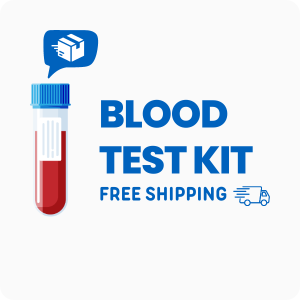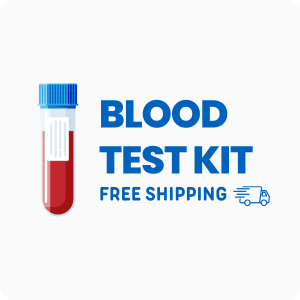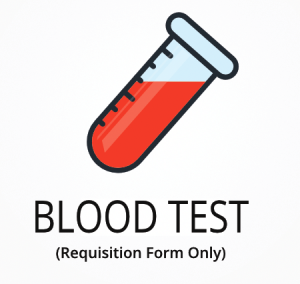Ordering the Comprehensive Metabolic Assessment Panel
The Comprehensive Metabolic Assessment Panel from Nutrition Mission Group provides a detailed look at key markers related to metabolism, nutrient balance, and organ function. This test measures blood sugar, cholesterol, thyroid hormones, inflammation, vitamin D, iron, and more, helping to spot patterns that may affect energy, digestion, and nutrient absorption. Interestingly, the panel includes the VAP cholesterol test, which can reveal cholesterol particle size—a detail not found in standard cholesterol checks.
Ordering this panel gives you a clear view of your metabolic and nutritional status. When you order, you can expect these specific benefits:
- Detects early changes in blood sugar and insulin that may signal risk for diabetes.
- Shows if vitamin D and iron levels are in the right range for bone and immune support.
- Reveals inflammation markers, such as C-reactive protein, that can affect heart and joint health.
- Assesses thyroid and red blood cell magnesium, which can impact energy and muscle function.
- Provides a full cholesterol breakdown, including particle size, for a more complete heart risk profile.
Who Might Benefit from a Metabolic and Nutrition Panel
People who feel tired after meals, notice changes in weight, or have trouble with focus may benefit from this panel. For example, someone who has been feeling more sluggish and notices their skin bruises easily might find answers in these results.
Ordering this panel may also be helpful in these situations:
- Tracking changes after starting a new diet or exercise plan.
- Checking nutrient levels before or after taking supplements.
- Monitoring blood sugar and cholesterol for those with a family history of diabetes or heart disease.
- Evaluating unexplained muscle cramps or weakness.
- Reviewing uric acid and iron levels for those who experience frequent headaches, which can sometimes be linked to these markers.
This panel is useful for finding out if your body is getting the nutrients it needs, if your organs are working as they should, and if there are early signs of metabolic changes. Delaying this test could mean missing early shifts in blood sugar or cholesterol, which are easier to manage when caught sooner.
Preparing for Your Metabolic and Nutrition Blood Panel
Fasting for 10-12 hours is required before your blood draw, and you should only drink water during this time. Always follow any directions your doctor or healthcare provider gives you, as they may have specific instructions based on your needs.
Labs Included When Ordering Your Comprehensive Metabolic Assessment Panel
| Test Name | Reference Range | What This Test Shows | Low and High Levels of the Test |
|---|---|---|---|
| Vitamin D 1,25 Dihydroxy Active Form | 18-72 | This test measures the active form of vitamin D in your blood, which helps control calcium and bone strength. It can also show if your kidneys are converting vitamin D properly. |
High levels mean your body may be absorbing too much calcium, which can cause kidney or bone problems.
Low levels mean you may not be getting enough vitamin D, which can weaken bones and affect muscle function. |
| T-3 Free | 2.3-4.2 | T-3 Free checks the active thyroid hormone in your blood, which helps control how your body uses energy. It is important for metabolism and temperature control. |
High levels mean your thyroid may be overactive, causing symptoms like fast heartbeat or weight loss.
Low levels mean your thyroid may be underactive, leading to tiredness or feeling cold. |
| Magnesium, RBC | 4.2-6.8 | This test measures magnesium inside your red blood cells, which is more accurate than checking it in the blood alone. Magnesium is needed for muscle and nerve function. |
High levels mean your kidneys may not be removing magnesium well, which can affect the heart.
Low levels mean you may have muscle cramps, weakness, or irregular heartbeat. |
| Hemoglobin A1c | 4.8-5.6 | Hemoglobin A1c shows your average blood sugar over the past 2-3 months. It helps spot early changes in blood sugar control. |
High levels mean your blood sugar has been high for a while, which can increase risk for diabetes.
Low levels mean your blood sugar has been lower than normal, which can cause tiredness or shakiness. |
| C-Reactive Protein | 0.0-3.0 | C-Reactive Protein is a marker for inflammation in your body. It can help spot early signs of heart or joint problems. |
High levels mean there may be inflammation, which can be linked to heart or autoimmune issues.
Low levels mean there is little or no inflammation present. |
| Insulin | 2.6-24.9 | Insulin helps move sugar from your blood into your cells. This test can show if your body is making too much or too little insulin. |
High levels mean your body may be resistant to insulin, which can lead to high blood sugar.
Low levels mean your pancreas may not be making enough insulin, which can cause blood sugar to rise. |
| Ferritin | 30-400 | Ferritin shows how much iron is stored in your body. It helps find out if you have too little or too much iron. |
High levels mean your body may be storing too much iron, which can harm organs.
Low levels mean you may not have enough iron, which can cause tiredness or weakness. |
| Iron | 50-170 | Iron is needed to make red blood cells and carry oxygen. This test checks if your iron levels are in a healthy range. |
High levels mean your body may be absorbing too much iron, which can damage tissues.
Low levels mean you may have anemia, which can cause tiredness and pale skin. |
| Uric Acid | 3.5-7.2 | Uric acid is made when your body breaks down certain foods. High levels can lead to joint pain or gout. |
High levels mean you may be at risk for gout or kidney stones.
Low levels mean your body may not be making enough uric acid, which is rare. |
| CMP14 | See Quest Directory | CMP14 is a group of tests that check kidney, liver, and electrolyte balance. It gives a broad view of organ function and fluid balance. |
High levels mean there may be problems with kidney, liver, or fluid balance.
Low levels mean there may be issues with nutrition or organ function. |
| LDH | 140-280 | LDH is an enzyme found in many tissues. It can rise when there is tissue damage or certain health conditions. |
High levels mean there may be tissue damage or inflammation.
Low levels mean LDH is rarely low, but may be seen in some inherited conditions. |
| VAP Cholesterol Test | See Quest Directory | The VAP cholesterol test gives a detailed breakdown of cholesterol types and particle size. This helps find hidden risks for heart problems. |
High levels mean there may be a higher risk for heart disease, even if standard cholesterol is normal.
Low levels mean cholesterol is in a lower range, which is usually good for heart health. |
| Complete Blood Count + Differential + Platelets | See Quest Directory | This test checks red and white blood cells and platelets. It can show signs of anemia, infection, or clotting problems. |
High levels mean there may be infection, inflammation, or risk for blood clots.
Low levels mean there may be anemia, bleeding, or immune issues. |
| Basic Thyroid Panel | See Quest Directory | This panel checks thyroid hormones that control energy, mood, and metabolism. It helps spot thyroid problems early. |
High levels mean the thyroid may be overactive, causing fast heartbeat or weight loss.
Low levels mean the thyroid may be underactive, leading to tiredness or weight gain. |
Reference ranges can change over time. For the most current values, visit the Quest Diagnostics lab test directory.
Comprehensive Metabolic Assessment Panel FAQ
Is there Comprehensive Metabolic Assessment Panel testing near me?
You can find nearby locations for this panel using the patient service center locator, which also lists mobile phlebotomy options. For those who need regular blood draws to track changes in metabolism or nutrient levels, having a convenient site makes it easier to stay on schedule and avoid missing important checks.
What is the cost of the test?
The price for this panel includes all fees, including sample collection at patient service center locations. Ordering this test is worth it if you want to track changes in blood sugar, cholesterol, or nutrient levels that may affect your energy or focus.
How often should I retest?
Most people benefit from retesting every 6 to 12 months, especially if they are monitoring changes in blood sugar, cholesterol, or nutrient levels. Regular retesting helps spot trends early, so you can make changes before small shifts become bigger problems.
How accurate is the test?
This panel uses advanced methods like immunoassay, high-performance liquid chromatography, and enzymatic analysis, with specificity and sensitivity both above 98%. All tests at TrueHealthLabs.com are performed by CLIA-certified labs, meeting strict quality and precision standards.
Important Notes
Fasting: 10-12 hours. Water only.
Specimen: Blood (Draw Location | How It Works | FAQs)
Medical Review Board
Reviewed by Jeff Donohue M.D. from Body Logic and Brady Hurst DC, CCCN. Written by True Health Lab’s team of editorial health contributors.
Disclaimer: This information is for educational purposes only and not intended as medical advice. Consult your healthcare provider for personalized guidance.
Why Customers Trust True Health Labs - What People are saying
Also rated 4.6 out of 5 based on 3452 ShopperApproved reviews- See all TrueHealthLabs.com reviews.








